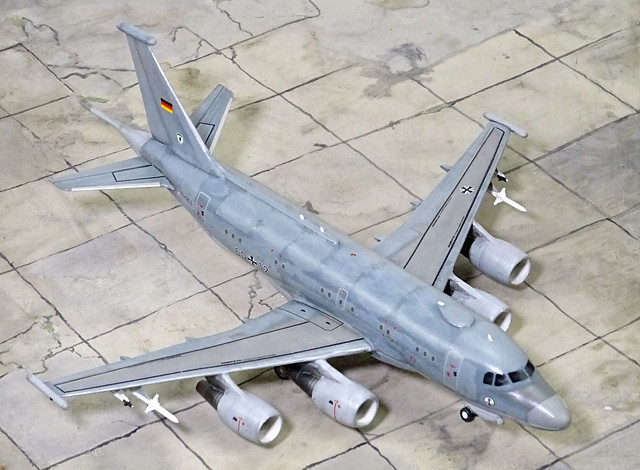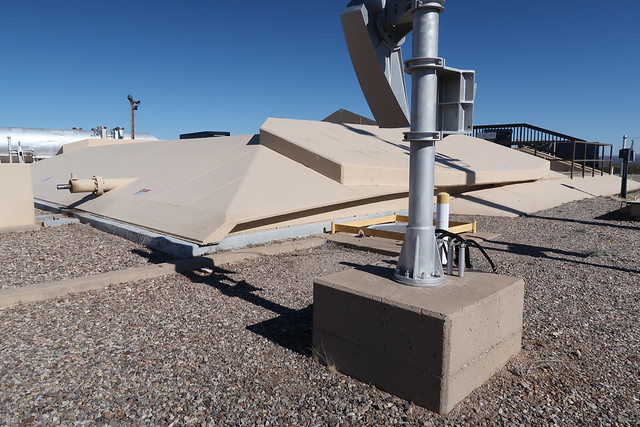Solar-Powered Wireless Security Cameras
The best solar-powered security cameras furnish tranquility while championing your eco-conscious endeavors. With a plethora of options flaunting distinctive attributes, pinpointing the ideal camera for your requisites transforms into a Herculean endeavor.
Aspects to consider include camera resolution, field of view, solar panel wattage, night vision, and motion activation. Some also support APP multi-device sharing for a family monitoring experience.
ANRAN Solar Security Camera
The ANRAN Solar Security Camera is a great external CCTV camera with the added bonus of two powerful LED floodlights. It’s fully wireless apart from the cable connecting it to the 5w solar panel and works on a 2.4Ghz Wi-Fi signal (it does not support 5G). It is easy to install, control and use with a wide range of features including human detection, night vision, siren, two-way audio and HD recording. It is fully integrated with Alexa and can also be linked with other ANRAN devices to create a united smart home monitoring system.
There are rules in the UK about installing CCTV cameras outside your property so be sure to check before installing one. Generally, it is recommended that they be sited away from the front of your house and should not be looking into neighbouring gardens.
Typically, a CCTV camera is powered by a power cable which needs to be run through a wall and then to the nearest mains outlet. This can be a bit of a pain as it usually means drilling holes in the wall, door or solar wireless security cameras window frame and then trying to hide or tidied up the cable once it is in place. With the ANRAN F1 Pro solar powered CCTV camera, there is no need for this as it is completely wireless and uses the power from its built-in battery.
Viseefocu Solar Security Camera
The Viseefocu Solar Security Camera is a reliable wireless outdoor security camera that uses solar energy to power up its battery, thereby eliminating the need for wires and electricity. This model features a high-definition 2K video and color night vision, making it ideal for monitoring your home. It also has advanced PIR motion detection and two-way communication to keep you informed of potential threats. Additionally, the camera offers SD card and cloud storage options for recording.
When choosing a solar-powered security camera, look for a model that has an adjustable mount and magnetic base for easy installation without professional assistance. In addition, consider a camera with a large-capacity built-in battery to ensure long runtime and hassle-free operation. Also, check for a camera that supports multiple users and devices. Finally, select a camera that can record and store surveillance videos locally using an SD card or stream them to a premium cloud storage service.
When selecting a solar-powered security camera, be sure to read customer reviews and compare specifications before purchasing. You should also consider whether you want to purchase a camera that is powered by solar energy or by a backup battery. A solar-powered camera will use less energy than a regular wired camera and will provide significant cost savings on your electricity bill. In addition, these cameras are environmentally friendly and help reduce carbon emissions.
REOLINK Solar Security Camera
Solar security cameras are a great way to watch over your property without having to worry about power or battery life. Unlike traditional security camera supplier wired security cameras, solar powered surveillance systems use high-grade solar panels that are built directly into the camera’s exterior to absorb sunlight and convert it into electricity. This provides the camera with a constant source of energy that can last for years with minimal maintenance.
Besides using solar power to keep your home protected, solar-powered security cameras can also help you save money on electricity bills. Since these devices are powered by the sun, they’re completely free from external energy costs and can be installed anywhere sunlight reaches. This makes them a smart choice for vacation houses, barns, sheds, and construction sites.
Another great feature of solar-powered surveillance systems is that they can stay connected even when there’s no WiFi or Internet connection available. Some models are equipped with 4G cellular connectivity, which allows you to view your live feed on your smartphone anytime and anywhere.
Many solar-powered security cameras come with a rechargeable battery that can last for a month or more on a single charge. However, the battery and solar panel require occasional maintenance to maximize their performance. Make sure to check the camera’s manual for specific maintenance tips. If you want to reduce maintenance time, consider getting a Reolink solar panel that is designed for battery-powered security cameras.
TP-Link Solar Security Camera
If you want to power a wireless security camera without the hassle of wires and cords, this solar powered camera is for you. It features a battery that’s supposed to last up to 300 days and recharges automatically. It also supports SD card storage and ONVIF. It’s easy to configure with the Tapo app and is designed for indoor/outdoor use.
You can use this solar-powered camera to monitor your property 24/7 and receive instant alerts when motion is detected. Its wide-angle lens captures a larger area and offers clear images even in low light. It’s also equipped with IR LEDs that ensure excellent night vision.
When you decide to choose a solar-powered surveillance camera, you need to consider its size and power consumption. It should be small enough to fit in your backyard and shouldn’t consume a lot of power. It should also have a good camera resolution.
To power a wireless camera with solar energy, you need a solar panel to generate electricity and a battery pack to store it. You’ll also need a power inverter, which converts DC into AC.
The best solar-powered security cameras feature a weatherproof design that’s suitable for outdoor use. They’re also a great option for remote areas where it’s hard to find AC outlets. In addition, they’re easier to install than traditional CCTV/IP security cameras.



